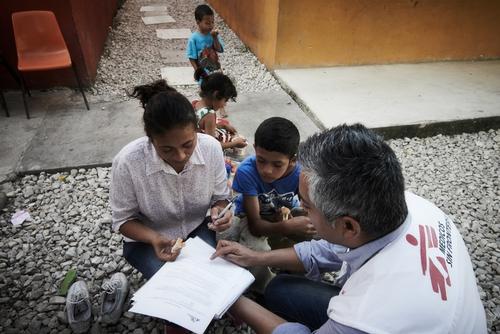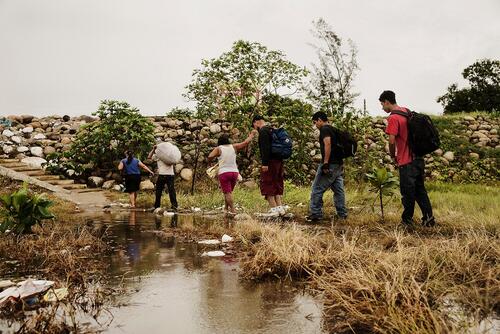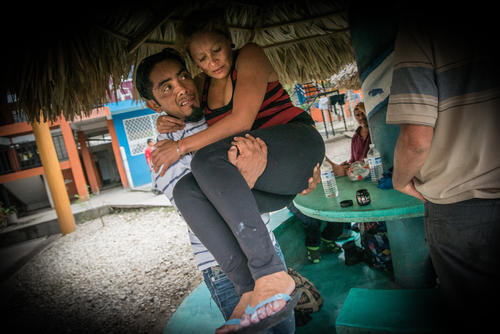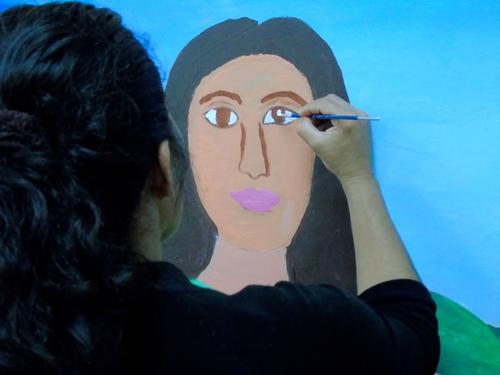- Two-thirds of Central American migrants and refugees suffer violence in Mexico.
- Each year, more than 400,000 people – most from El Salvador, Honduras and Guatemala – cross Mexico, fleeing violence, poverty and threats from criminal gangs. For more than three years, teams from Médecins Sans Frontières (MSF) have been providing them with medical care and humanitarian aid.
- On International Migrants Day, we spoke with Carla Denti, MSF’s medical coordinator in Mexico, who described the long and often dangerous journeys that people make, the violence they are exposed to along the way, and the barriers they face accessing health services in Mexico.
Based on your experience providing care, what compels so many Central Americans to leave their countries?
Widespread violence: killings, kidnappings, disappearances, extortion, threats and forced recruitment by armed militants. Some cities in El Salvador and Honduras have the highest homicide rates in the world. This situation compels a considerable number of people to leave their homes and loved ones to save their own lives.
Sixteen per cent of our patients say that direct attacks were their main reason for fleeing, while 41 per cent decided to flee after receiving direct threats. Undoubtedly, violence is a determining factor. Combined with poverty, it’s the main factor forcing these people to migrate to Mexico and the US.
What impact is the Mexican government’s ‘Southern Border Plan’ having on these people?
Since the Mexican government implemented its ‘Southern Border Plan’, security has been toughened up and controls and checkpoints have increased, forcing migrants to take more dangerous routes.
A journey across Mexico on foot usually takes two to seven days. On the journey, people face criminal gangs and all kinds of violence, including sexual violence. They are at risk of being robbed, abused, raped, kidnapped or even killed by criminal organisations.
In a survey* we conducted in 2015 along different parts of the migration route, two-thirds of migrants and refugees reported being subjected to some form of violence.
The ‘Southern Border Plan’ has also resulted in increased deportations or ‘repatriations’. Official figures from the Migration Policy Unit are striking: in 2015, 88 per cent of migrants under arrest were deported. The systematic deportation of Central Americans who are at risk of violence in their countries of origin calls into question access to protection mechanisms which should be guaranteed in Mexico.
Can migrants and refugees access health services in Mexico?
In Mexico, all victims of violence are entitled to receive quality medical and psychological care, regardless of their origin and their migration status, with special care for survivors of some forms of extreme violence. Since 2015, these people have been able to apply for temporary registration with the Mexican public healthcare system.
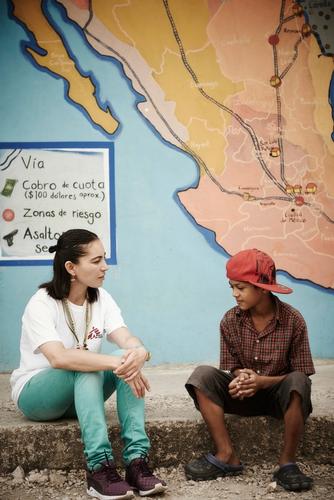
However, in our experience, these people still have a worrying lack of access to healthcare, which is often hampered by health staff being unaware they should provide this care, or by a lack of resources. Most of our patients prefer not to seek medical attention for fear of being deported or reported.
For women who have been victims of sexual violence, it is much more complex. For them, it is crucial to have timely access to emergency contraception and post-exposure prophylaxis treatment, which can mean the difference between life and death. Mexican health standards view rape as a medical emergency but, in practice, Central American women face twin barriers – the fear of being deported, and the fear of social stigma, which Mexican women already know about.
For those who have been victims of extreme violence, getting medical and psychological care should be a priority.
Can you describe the work of MSF’s comprehensive care centre?
Our comprehensive care centre provides medical and psychological support to victims of torture and cruel, inhumane and degrading treatment. It is staffed by a team of doctors, psychologists and social workers.
The team works with the network of shelters and humanitarian facilities for migrants and refugees across Mexico to identify those people who have been victims of extreme violence. We also offer advice on social and legal protection issues, with the support of the Scalabrinian Mission for Migrants and Refugees.
Since the centre opened in 2015, we have had 85 patients. One in four was female, and 15 per cent were children or teenagers. Half of the patients needed to be referred to specialist or advanced healthcare services, in particular those who had experienced severe trauma or sexual violence. Nine in ten of those surveyed reported symptoms of depression or anxiety.
How are you marking International Migrants Day?
On International Migrants Day, MSF calls on the Mexican authorities to effectively implement protection measures that take into account the violence that people have been exposed to in the Central American countries from which they have fled, as well as in Mexico itself. These protection measures should include the systematic suspension of mass deportations, which are being carried out irrespective of people’s individual circumstances or the risk to their lives posed by being returned to their country of origin.
It is also crucial that legislation is enforced to implement real access to healthcare services, especially for those people crossing Mexico who become victims of violence.
*In MSF’s survey, carried out in September 2015 at five locations along the migration route, 467 randomly selected migrants and refugees were asked about their experiences while crossing Mexico.




